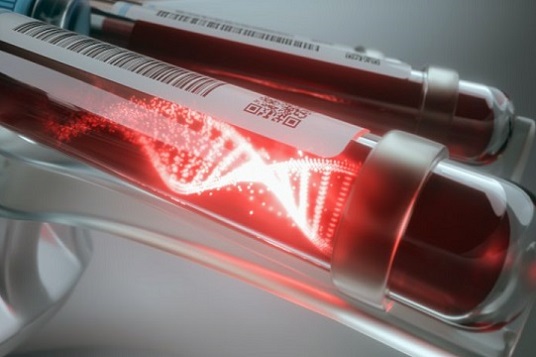Brazilian Scientists Unveil the Promise of Liquid Biopsy in Fighting Deadly Glioblastoma Without Risky Brain Surgery
Nikhil Prasad Fact checked by:Thailand Medical News Team May 09, 2025 9 months, 2 weeks, 20 hours, 24 minutes ago
Medical News: Researchers from three leading Brazilian institutions—the Universidade Federal do Rio de Janeiro (UFRJ), Universidade Federal do ABC (UFABC), and Instituto Estadual do Cérebro Paulo Niemeyer (IECPN)—have released a groundbreaking review highlighting a new way to detect and track one of the most aggressive forms of brain cancer, glioblastoma (GBM). This
Medical News report explores how liquid biopsies could help patients avoid risky brain surgeries while allowing doctors to diagnose and monitor this deadly disease more effectively.
 Brazilian Scientists Unveil the Promise of Liquid Biopsy in Fighting Deadly Glioblastoma Without Risky Brain Surgery
Brazilian Scientists Unveil the Promise of Liquid Biopsy in Fighting Deadly Glioblastoma Without Risky Brain Surgery
Glioblastoma is a fast-growing cancer that forms in the brain and spinal cord. It is the most common malignant brain tumor in adults and is known for its resistance to conventional treatments like surgery, chemotherapy, and radiation. Most patients survive just 14 to 20 months after diagnosis. Diagnosing GBM usually requires an invasive tissue biopsy or imaging scans such as MRI. However, these methods have limitations, especially in distinguishing true tumor growth from treatment-related changes like inflammation, called pseudoprogression.
What Is a Liquid Biopsy and Why Is It Important?
Unlike traditional biopsies that remove a piece of the tumor through surgery, liquid biopsy is a much less invasive method. It uses a simple sample of body fluid—usually blood, plasma, or cerebrospinal fluid (CSF)—to look for tumor-related particles like DNA, RNA, or small bubble-like structures called extracellular vesicles. These molecules come from tumor cells and carry valuable information about the cancer’s genetic makeup and behavior.
Liquid biopsies can be repeated many times over a patient’s treatment period, allowing doctors to closely monitor how the tumor evolves and how well it’s responding to therapies. Importantly, they may also pick up signals from parts of the tumor that are otherwise unreachable by surgery, offering a more complete picture of the cancer.
Key Findings from Over 60 Studies
The review analyzed 64 different scientific studies published over the last decade. These studies used various fluids like blood, CSF, and urine, and analyzed different types of tumor markers—including circulating tumor cells (CTCs), cell-free DNA (cfDNA), RNA fragments, and metabolic molecules.
-Circulating Tumor Cells (CTCs): Although extremely rare in the blood, some studies showed they can provide early warning of tumor recurrence and help doctors track treatment effectiveness.
-Extracellular Vesicles (EVs): These tiny particles carry proteins and genetic material. Researchers found that certain proteins in EVs increase when GBM is present and even correlate with tumor severity and patient survival.
-Circulating Tumor DNA and RNA: Fragments of tumor DNA in
CSF were found to match the actual tumor DNA more closely than what was found in blood. Some studies even linked higher levels of cfDNA with shorter survival times.
-MicroRNAs and Other Non-Coding RNAs: Several unique RNA molecules were found in patients with GBM that were absent in healthy people. These could potentially be used to diagnose the disease and predict outcomes.
-Proteins and Metabolites: Specific proteins and small molecules in the blood and even saliva showed promise in identifying GBM and tracking its progression. Some of these were linked to worse patient outcomes and may be used to tailor personalized treatment plans.
Challenges and Future Potential
Despite the promise, liquid biopsy is not yet widely used in hospitals for GBM patients. There are still hurdles, such as the blood-brain barrier, which limits the movement of tumor molecules into the bloodstream. Also, because GBM biomarkers are often present in tiny amounts, detecting them reliably requires advanced and expensive technologies.
The researchers emphasized the need for standardizing methods and conducting larger studies to validate these findings. Several clinical trials are already underway, including new efforts to use tear fluid and focused ultrasound to improve detection.
Conclusion
The potential of liquid biopsy in managing glioblastoma is enormous. It offers a safer, quicker, and more detailed way to understand a patient’s cancer, guide treatment choices, and monitor disease progression or recurrence. Although more research is needed, this approach may soon become an essential tool in the fight against brain cancer. As testing becomes more accurate and accessible, patients could benefit from faster diagnoses, personalized therapies, and improved survival outcomes.
The study findings were published in the peer reviewed journal: Biomolecules.
https://www.mdpi.com/2218-273X/15/5/658
For the latest on Glioblastoma, keep on logging to Thailand
Medical News.
Read Also:
https://www.thailandmedical.news/news/retinoic-acid-may-hold-key-to-weakening-glioblastoma-resistance
https://www.thailandmedical.news/news/university-of-mississippi-study-shows-that-juice-of-the-cornelian-cherry-can-help-with-glioblastoma
https://www.thailandmedical.news/news/metformin-shows-potential-as-an-angiogenic-supplemental-adjuvant-for-glioblastoma-treatment
https://www.thailandmedical.news/articles/cancer
https://www.thailandmedical.news/pages/thailand_doctors_listings
